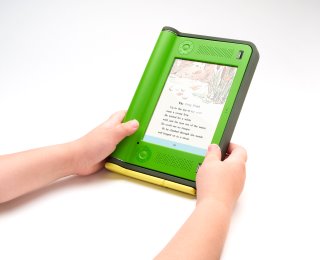Encontré que Negroponte junto con Kofi Annan ya habían presentado para fines del año pasado un computador por $100 para los niños; que coincidencia, es el precio que propuse en un post hace algún tiempo para la educación chilena—falta la red wireless con cobertura nacional y los textos educativos virtuales.
Pero, aquí tienen una noticia interesante:
1. Libya and OLPC signed an MOU in which they agreed to work togethertowards the deployment of one OLPC laptop for every school-age child inLibya and contributing laptops to poor African nations. OLPC will provide the support needed by Libya to plan and carry out such a deployment. The signing took place during a visit by Nicholas, Walter Bender, and Khaled Hassounah, where they met with members of the newly formed OLPC4Libya steering committee. The committee was presented with the outline of a comprehensive plan to distribute the laptops, create connectivity and server infrastructure, and prepare teachers and students. Libya will send a team to the OLPC office in Cambridge to focus on software (Linux), infrastructure, and education content.En otras palabras, un computador para cada niño en Libia… Parece increíble, y lamentablemente parece que lo es; quizás Libia pueda, pero Nigeria no, de acuerdo con este último post en OLPC News, este computador ya cuesta como $208 USD instalado (¿?), y son demasiados niños…
Igual insisto en mi propuesta, un computador para cada niño; siempre y cuando, el padre esté dispuesto a pagar el 20% de su precio. Y, para que no se les haga muy aburrido este post, éste es un video con una entrevista a Negroponte y otros, que me robé de OLPC News...
...Que sean los niños quienes hagan las conexiones.
Finalmente, un testimonio de Costa Rica tomado de Wiki.laptop.org:
Moreover, with mobile, connected laptops the walls of the classroom open and the entire community becomes the classroom and virtually the whole world enters on demand. The children carry the classrooms and teachers of the world with them through the community and into their homes. Children can participate in the study of global issues while simultaneously using local context for understanding. They can fully participate as producers of knowledge and not just as consumers of materials produced by others....Sin comentarios.
Prior 1-to-1 laptop experiences in other countries have demonstrated tremendous gains in learning, more time spent on schoolwork, development of technological fluency, and a stronger sense of inclusion among the students. While the majority of prior experiences have been in wealthier countries, the experience in a rural community of Costa Rica in 2006 exemplifies the potential.
Not only did the children go far beyond the usual curriculum, but also they learned to care for and repair their computers. The difference in how they treated and learned about their own laptops compared to the computers in the school lab was astonishing. The parents made covers to protect the laptops. The children learned to repair them so that they would not be deprived of their use. The parents entered into adult education in highly increased numbers. The teacher went from being dubious to a strong supporter after participating in the children’s gains.
The greatest testimony was that families moved to this community so that their children too could get laptops and the education they enabled. (See Claudia Urrea's wiki page for the CREATE project for more details.)

1 comment:
Muy bueno el video e ilustrativo.
Gracias
Post a Comment